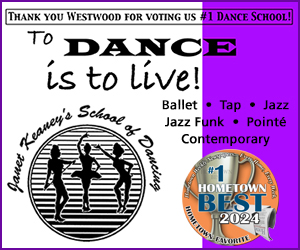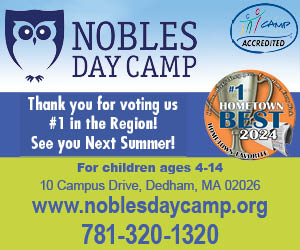While the mascot name encompassed most of the event, it did end with a kneeling moment of silence in remembrance of George Floyd.
By James Kinneen
Hometown Weekly Reporter
With Confederate statues toppling all over the country, schools being renamed, and even the most stereotypically conservative of institutions, like NASCAR, banning the “stars and bars” at their races, do the Walpole High School sports teams need to go by a name other than the Rebels? According to a couple former star Walpole athletes, the answer is "absolutely."
On Saturday night, the Walpole Peace and Justice Group held another daily standout for racial justice, but this one was focused on a much more local issue: changing the Walpole mascot. While many people showed up to support the name change, with signs that read “weren’t the Rebels the ones who lost”, “Retire the Rebels” and “a true Rebel champions change,” it was a couple of speeches from stars of Walpole’s athletic past that were most poignant.
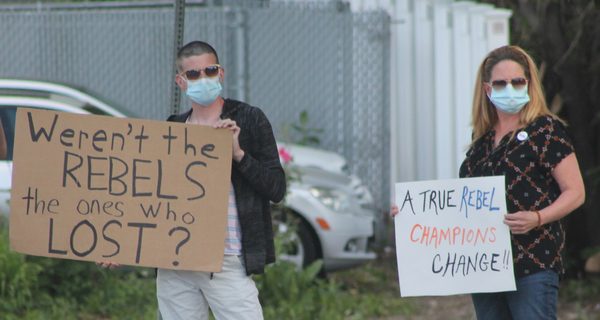
First to speak was Chris Cameron, a history teacher at Thayer Academy who captained the football, basketball and track teams for Walpole High in 2009. Rather than attack anyone who wants to keep the name, Cameron explained how winning the Super Bowl for the Rebels in 2008 made him so proud, and that he understands how people’s memories and identity can be wrapped up in being a "Rebel."
“When I grew up, I was a proud Rebel, and I was an avid defender of 'Rebel Pride' and all it stood for,” he explained after talking about the best moments of his high school sports career. “But, that name that once filled me with so much pride, now brings me shame and embarrassment. I can empathize with those people that defend the Rebels and their mascot. It’s so tied up in their memories and their identity that they don’t want to lose it. But I don’t think we can any longer ignore what the Rebels, and by extension the Confederate flag, represents. It represents slavery, segregation, hatred, violence and racism. These are not the values of this great town. Therefore, these symbols are not worthy of representing Walpole.”
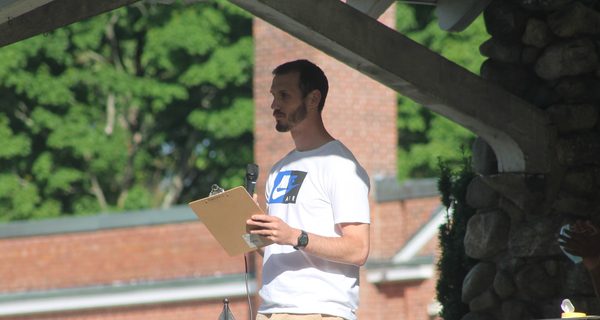
Cameron cited Ole Miss’ mascot change, but got it objectively wrong. “In 2017," he said, "Ole Miss changed their mascot from the Rebels because they recognized the name was offensive to so many of their students and that it was a divisive symbol in their community, instead of promoting unity in their student body.”
This is incorrect. Ole Miss' teams are still the Rebels, but ironically, they provide a strong perspective on changing Walpole's name. Ole Miss eliminated Colonel Reb, their Confederate mascot, in 2003. He was replaced with a suit-wearing bear. People hated the bear, and students unsuccessfully pressed hard for the Rebel mascot to be either a James Dean “Rebel Without a Cause” figure, or “Admiral Akbar” from Star Wars, a member of the Rebel Fleet. The bear was eventually eliminated in favor of the Land Shark, a nod to the football team's defense. Despite all these re-branding measures, Googling “Ole Miss” immediately brings up image after image of Confederate flags, and every Ole Miss tailgate features Confederate imagery in one form or another. Sharks, bears, Star Wars characters: no matter how many times they changed the mascot, fans of the Rebels honored the Confederacy.
Stanford used to be the Indians, now they're the Cardinal. Do you see a lot of Stanford kids in headdresses?
Similarly, Cameron spoke of seeing Confederate flags flying in the stands of both the 2007 and 2008 Super Bowl games he played in. He noted a Confederate flag was raised in the yard of a neighbor whose home overlooked the field for years, and that he recently read in the newspaper that school officials had to warn seniors not to fly the Confederate flag during their graduation rally.
“The time of half measures is over,” he declared. “Removing the Confederate flag, rebranding the Rebels, and covering the neighborhood flag are half measures, and are simply not enough. The only way to end our association with the Confederate flag once and for all is to retire the Rebels.”
After Cameron, Darley Desamot was introduced. A professional wrestler and a member of the 2008 Walpole Championship football team, the organizer that brought him on stage argued: “we are truly in the presence of Walpole football greatness here tonight.”
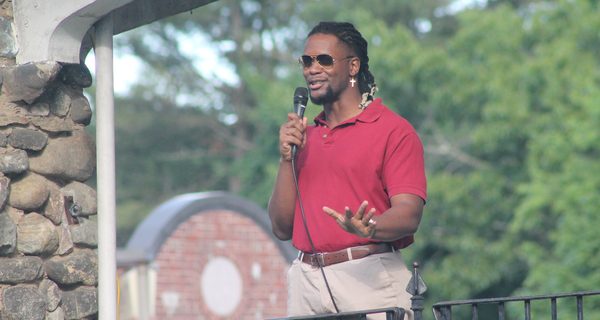
Desamot talked about being born and raised in Walpole with his uncles (who were present) and his sister, while giving special mentions to his time at Boyden Elementary and Bird Middle School. And while he pointed out that as a Walpole Rebel, he didn’t personally experience racism, it took him leaving the town to realize why the Rebel name is such an issue.
“When I was in Walpole High, part of the Rebels, I was in a bubble. When you’re inside that bubble, when you’re inside the structure of a football team, all you know is brotherhood. All you know is going to war with your brothers, winning games, and looking ahead and hopefully going to the super bowl, which we did. The only time I knew something was wrong was after games, kids would come up to you and we’d shake their hands, win or lose. And, I remember people of color, black kids, coming up to me and saying 'why are you a part of this team?' Mid-handshake, 'why are you a part of this team?' And I would always be confused why that happened. The reason I bring that up is when you’re inside the bubble of being in the Walpole Rebels, you don’t know whats going on outside of your world. You’re just focused on school and sports - that’s your world. And I remember asking questions like 'why are they asking me why I’m part of that team?' and people would say to ignore it, or we would win in such a decisive way I’d say 'maybe it’s because they just got their butts kicked.' But that wasn’t the case. I learned, later on, when I had left the bubble of being a Walpole Rebel. When you’re in college and you’re going out to events, and meeting people of color and other black kids outside of Walpole and learning a lot more, I realized there was a big problem.”
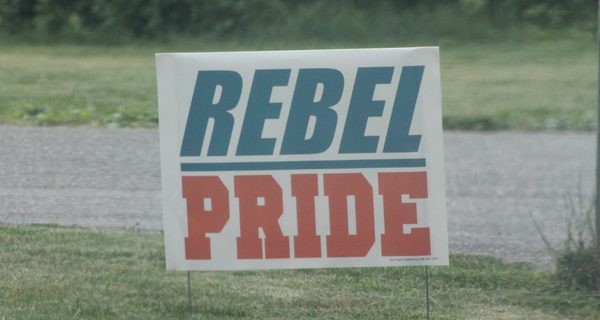
Desamot talked about how “perception is reality,” and how the perception of Walpole as a racist town due to the Rebel issue has impacted some of his life decisions. Desamot made it to the WWE, the pinnacle of professional wrestling, and was asked to talk a little bit about himself and where he’s from. In a video still available on YouTube, he says he’s from Boston.
While someone from the Boston suburbs saying they’re from Boston might not seem like a huge deal, for Desamot it was. See, he didn’t say he’s from Boston because nobody knows where Walpole is, he said he was from Boston because he didn’t want people looking his hometown up on the internet and seeing all the Confederate stuff.
But Desamot made it clear that once the Rebel name is changed, he’ll happily tell people about his hometown.
“If I ever make it back to the WWE,” he declared, “I want to say I’m a small-town kid from Walpole.”
With all this focus on voting to change the name, the question arises whether it will matter or not. The people knocking down Confederate statues with sledgehammers don’t seem very concerned with what town legislators voted, so what happens if Walpole athletes place duct tape over the name on their jerseys? What if they refuse to play until the name’s changed (in 2015, for example, Mizzou football players threatened they wouldn’t play if the school president didn’t resign over a racist incident, and he was quickly fired)? What if, win, lose or draw, team captains make every post-game interview with the press about why the name needs to be changed? What if fans fill the stands with Confederate flags and posters depicting the horrors of the Antebellum South to publicly shame the school?
While there are counter-petitions from students seeking to keep the Rebel name, there were a ton of young kids at the rally with signs declaring that their generation was going to be the one to bring about change. If they keep up the energy they had on Saturday night, no matter how any vote goes, they're going to do it.

















